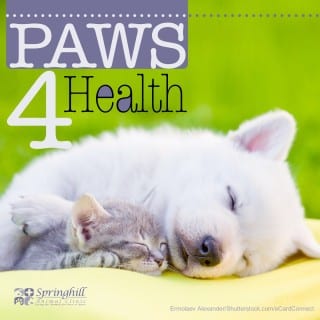Part of being a responsible pet parent is keeping your four-legged family member free from harm — especially poison-related emergencies, which are so often preventable in the first place. It’s a good idea to always have the number for the ASPCA Animal Poison Control Center (APCC) handy (888-426-4435); they are definitely your best resource if you think your pet has ingested or come into contact with a potentially poisonous substance 24 hours a day, 365 days a year. Annually, they receive over 180,000 calls!
In honor of Poison Prevention Week we’ve compiled a list of the top 5 toxins most commonly ingested by pets — and reported to the APCC — in 2016.
1. Human Prescription Medications. This category accounted for nearly 17% of all cases that they APCC handled in 2016. The top three most commonly reported medications that pet parents feared their pets were exposed to were the most popular medications prescribed to humans — heart medications, antidepressants and ADHD medications. Many times these pills are dropped accidentally when taking them, and before you know it, a curious pet has swooped in and eaten the pill off the floor.
2. Over-the-counter products. This category came in a close second comprising 16.7% of all cases reported. Encompassing nearly 7,000 products, ibuprofen is the number one medication the APCC receives calls about. Always maintain the utmost care when handling these products and keep them out of reach of curious pets.
3. Food. Several people foods, including chocolate, xylitol (the sugar substitute), grapes, garlic and alcohol smell good to pets, yet can be very dangerous to them.
4. Veterinary Products. You love those flavored tablets you get because it makes it easier to get your pet to take them, but they love the taste, too, and don’t understand that eating the whole bottle can be really bad for them.
5. Household Items. Common items such as paint, glue and cleaning supplies contribute to tens of thousands of poisonings each year. Store these in safe places, away from prying paws.
As always, care and caution in exposing pets to these common substances will prevent unwanted situations, misery and anxiety. If you have any reason to believe that your pet may have come in contact with or ingested something toxic, don’t hesitate to contact us here at the office or the APCC’s 24-hour hotline at (888) 426-4435.



